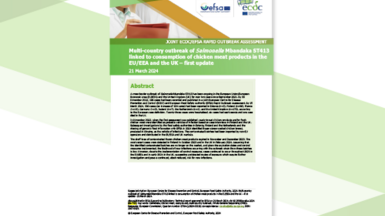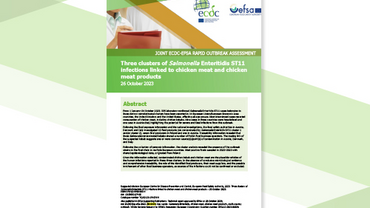Multinational outbreak of Salmonella Enteritidis infections among junior ice hockey players attending the Riga Cup 2015
This rapid risk assessment reports on a multinational outbreak of Salmonella Enteritidis which is currently ongoing among junior ice hockey players who attended the Riga Cup 2015 in Latvia. The outbreak is reported to have affected more than one hundred participants to date.
This is most likely a point source outbreak, potentially in a cafeteria at the venue, although the possibility of there being additional places of exposure cannot be excluded at this stage.
Executive Summary
An outbreak of Salmonella Enteritidis is reported to have affected more than 100 participants at the Riga cup, a junior ice hockey tournament that took place in Riga, Latvia between the 27 March and 26 April 2015. The most likely source of the outbreak is a cafeteria at the tournament venue, although additional places of exposure are not ruled out at this stage.
According to the Latvia public health authorities, the organisers of the tournament have identified 104 persons with gastrointestinal symptoms: 82 cases from Finland and 22 cases from Norway to date. Junior ice hockey teams from Belarus, Estonia, Finland, Germany, Hungary, Latvia, Lithuania, Luxemburg, Norway, Russian Federation, Sweden, Switzerland and Ukraine participated in the tournament.
As the tournament has just finished and the source of infection is not yet identified, new cases are likely to be detected. The most recent date of onset was 23 April which indicates that the outbreak is still ongoing.
ECDC encourages affected countries and all others with known or potentially associated cases to report detection of all such cases through the Epidemic intelligence Information System for Food and Waterborne Diseases (EPIS-FWD) and to communicate about adopted control measures through the Early Warning and Response System (EWRS).







